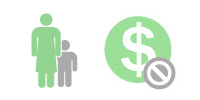
Intervention Overview
According to the Mayo Clinic, there are four ways to cope with stress and unwanted emotions: Avoid, Alter, Accept and Adapt (Conway, 2021). Other studies have found that responses to stressors include using direct action coping strategies or palliative coping strategies. Direct coping strategies may include: planning, challenge master, self-monitoring and self-reflection. These strategies tend to focus on accepting a problem or challenge, and then altering and adapting to that challenge. Palliative coping strategies focus on avoidance of distress and include strategies such as procrastination, self-handicapping, and failure avoidance.
While palliative strategies can reduce distress in the short-term they are not often effective at improving wellbeing long-term. The 2021 Teacher Wellbeing Index, completed in the UK, found that teachers tend to avoid stressors and predominantly use the palliative coping mechanisms of alcohol consumption, physical exercise and eating. Among teachers, one study found direct coping strategies were more effective than palliative strategies generally at improving workplace engagement, job satisfaction and teachers’ ability to bounce back from daily challenges(Parker & Martin, 2009). Teachers who engage in self-regulation and direct coping strategies also report lower levels of emotional exhaustion. However, Parker and Martin (2009) also address that not all direct coping strategies will equally improve wellbeing, nor will all palliative strategies be equally damaging to wellbeing. It is important that educators ensure that the strategies they use are directly linked to the improvements they hope to achieve. It has also been proposed that emotion-focused coping (changing the meaning of threats or challenges) is more effective at improving well-being than problem-focused coping (behaviors and tasks to overcome a problem) (Parker et al., 2012).
Intervention Guide
| Materials: |
Varies |
| Duration: |
Varies |
| Implementation: |
Possible self-regulation strategies include:
- Action Planning: set a goal and make a plan to achieve that goal before beginning a task or tackling a problem.
- Self Monitoring: Monitor and evaluate your performance in specific tasks.
- Performance Control: Focus on controlling and redirecting attention and motivation during tasks.
- Self-Reflection: Reflect on current performance and potential changes needed in the future. (Mattern & Bauer, 2014)
|
Does it work?
Mattern and Bauer (2014) assessed the impact of self-regulation skills on teacher wellbeing, evaluating secondary math teachers from 99 schools across Germany. Teachers were asked questions regarding four direct coping strategies: Action Planning (“Before I start working on a new task, I come up with a plan”), Self-Monitoring (“I recall the things I need to do several times a day”), Performance Control (“After getting interrupted, it is easy for me to get back to work”), and Self-Reflection (“From my successes and failures, I learn how to improve my working practices”) (p.62). Teachers rated their self-regulation skills in each area of the model on a Likert scale. Results from well-being measures specifically targeting job satisfaction and emotional exhaustion were combined with the self-regulation study to see if teachers who had better self-regulation skills also had improved wellbeing. Teachers who reported the use of these self-regulation strategies also reported lower levels of emotional exhaustion than those who did not practice these strategies consistently. It was also identified that both male and female teachers benefit equally from the direct coping strategies evaluated in this study (Mattern & Bauer, 2014).
An additional study of 515 teachers compared palliative and direct coping strategies for their effectiveness at improving workplace engagement (Parker & Martin, 2009). It was found that direct coping strategies such as planning and mastery orientation were slightly more positively associated with workplace engagement and job satisfaction than palliative coping strategies such as procrastination and self-handicapping (Parker & Martin, 2009). A similar study with 430 Australian teachers also found that those who were focused on goal mastery as a coping mechanism, rather than avoidance of failure, experienced lower levels of stress and burnout (Parker et al., 2012). However, it is important to note that the results from these two studies were not completely consistent across all participants, indicating that not all direct coping strategies will improve wellbeing nor will all palliative strategies be damaging to wellbeing (Parker & Martin, 2009).
References:
Conway, A. (2021, March 8). The 4 A’s of stress relief. Mayo Clinic Health System. https://www.mayoclinichealthsystem.org/hometown-health/speaking-of-health/the-4-as-of-stress-relief
Education Support (2021). Teacher wellbeing index 2021. https://www.educationsupport.org.uk/resources/for-organisations/research/teacher-wellbeing-index/
Mattern, J. & Bauer, J. (2014) Does teachers' cognitive self-regulation increase their occupational well-being? The structure and role of self-regulation in the teaching context. Teaching and Teacher Education, 43, 58-68. https://doi.org/10.1016/j.tate.2014.05.004
Parker, P.D & Martin, A.J. 2. (2009). Coping and buoyancy in the workplace: Understanding their effects on teachers' work-related well-being and engagement. Teaching and Teacher Education, 25 (1), 68-75. https://doi.org/10.1016/j.tate.2008.06.009
Parker, P. D., Martin, A. J., Colmar, S., & Leim, G. A. (2012). Teacher's workplace wellbeing: exploring a process model of goal orientation, coping behavior, engagement, and burnout. Teaching and Teacher Education, 28, 503e513. http://dx.doi.org/10.1016/j.tate.2012.01.001.